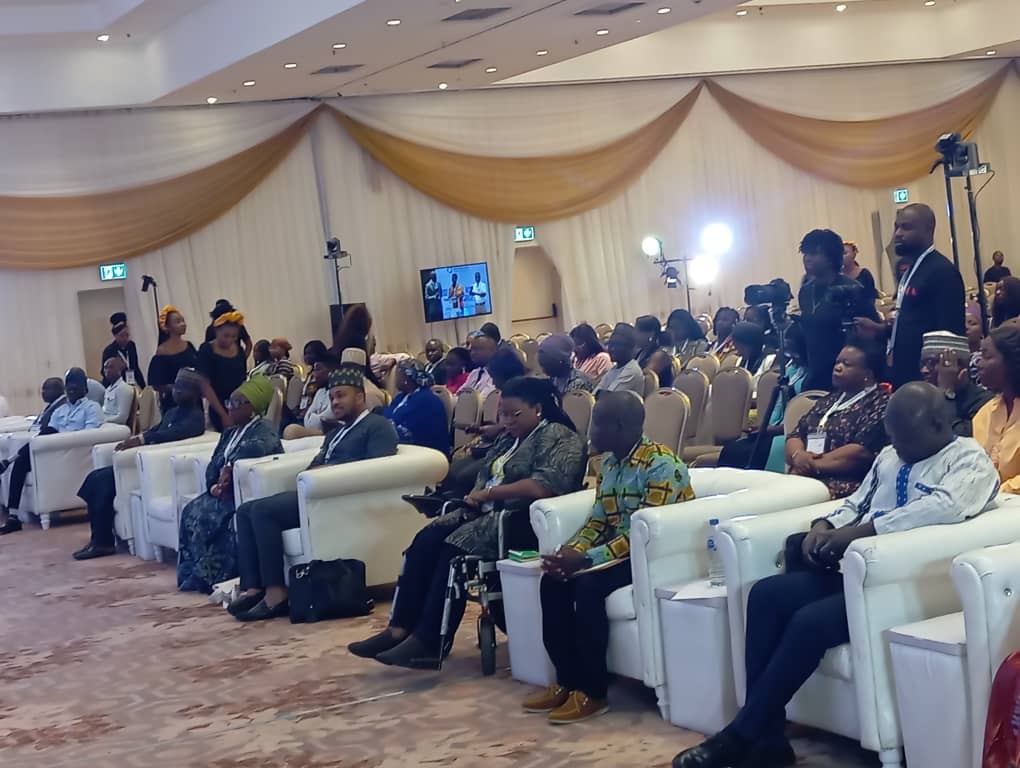
A two-day Social Norms Conference brought together leading experts, policymakers, and development professionals from across West Africa to discuss how sociobehavioral approaches can accelerate human capital development in the region.
The conference held between from Nov. 5 to 6, with the themed “From Research to Reality: Sociobehavioral Solutions for Accelerated Human Capital Development,” was a platform for tackling societal norms that affect human capital growth and for translating research insights into actionable strategies.
It was organised by the Anglophone West Africa Learning Collaborative,and hosted over 200 participants, including representatives from government, donor organisations, NGOs, academia, and research institutions.
In attendance were influential leaders from sectors such as health, education, and women’s affairs, alongside stakeholders from diverse community-driven initiatives and advocacy groups.
Through keynote addresses, panel discussions, and interactive breakout sessions, participants explored approaches to reshaping social norms that impede progress in areas like gender equality, youth empowerment, and equitable access to essential services.
Chief Moji Makanjuola (MFR), in her keynote address, titled “Families at the Heart of Change: Generations and Gender Paradigms Guiding Us Forward,” underscored the powerful influence of family structures in shaping societal values across generations.
“The family unit is pivotal in shaping norms across generations,” Makanjuola noted, adding, “If we want real change, we must start within our homes, building values that prioritize equity and inclusivity.”
The first day’s expert led discussions were grounded in setting the foundation to understanding social norms and Agency with an emphasis on how economic independence can shift long-standing societal expectations and improve inclusive growth.
Another key session spotlighted maternal and reproductive health, discussing innovative approaches to challenge and transform limiting norms in communities that impact health outcomes.
This was followed by a mix of dance and drama and a series of sessions exploring how social norms contributes to gender-based violence (GBV), acceptance of beneficial innovations and rejection of harmful practice, improving support services for survivors and underscored the importance of multi-stakeholder collaboration in prevention and response efforts, with thought leaders from WARIF, Tabitha Empowerment Centre and Bayero University of Kano advocating for holistic approaches to address recovery, resilience and shift of harmful norms.
Sessions on Day Two highlighted the benefits and importance of women’s agency in leadership roles, the unique role of expressive arts, and initiatives rooted in cultural crafts and traditions in driving social norms change, especially in addressing gender equality, advancing health, and fostering dialogue for community development.
The day’s event had top female leaders such as Senator Ireti, Hon. Ayo Omidiran sharing their experiences and contributions to development thereby inspiring young female professionals to aim to participate actively in leadership roles.
This was followed by a series of expert led presentations on the role of Digital technology in improving literacy and agency for social change, digital platforms, tools, and programs that facilitates SBC, digital and social literacy, thus equipping individuals with the knowledge and skills necessary to challenge and reshape harmful social norms.
The conference emphasiaed the importance of building agency and integrating cultural insights into SBC programs with participants gaining strategies to bridge community barriers to healthcare access, literacy, education and support for survivors of violence.
Throughout the event, cross-sector collaboration emerged as a key theme, recognizing that lasting sociobehavioral change demands collective action across fields.
An exciting highlight of the conference was the Hackathon Challenge which garnered ideas and art submissions addressing pressing issues affecting women’s welfare in West Africa.
These campaigns advocated for supportive policies and community actions to advance women’s rights and opportunities.
Winners of the challenge were awarded cash prizes and celebrated in a closing session, reinforcing the conference’s commitment to innovative and actionable solutions.
The conference concluded with a renewed commitment to ongoing knowledge exchange, innovative SBC programming that bridges the gap in research and practice to drive sustainable human capital development in West Africa.